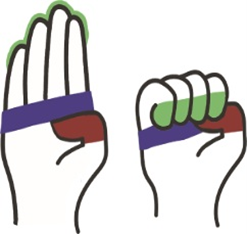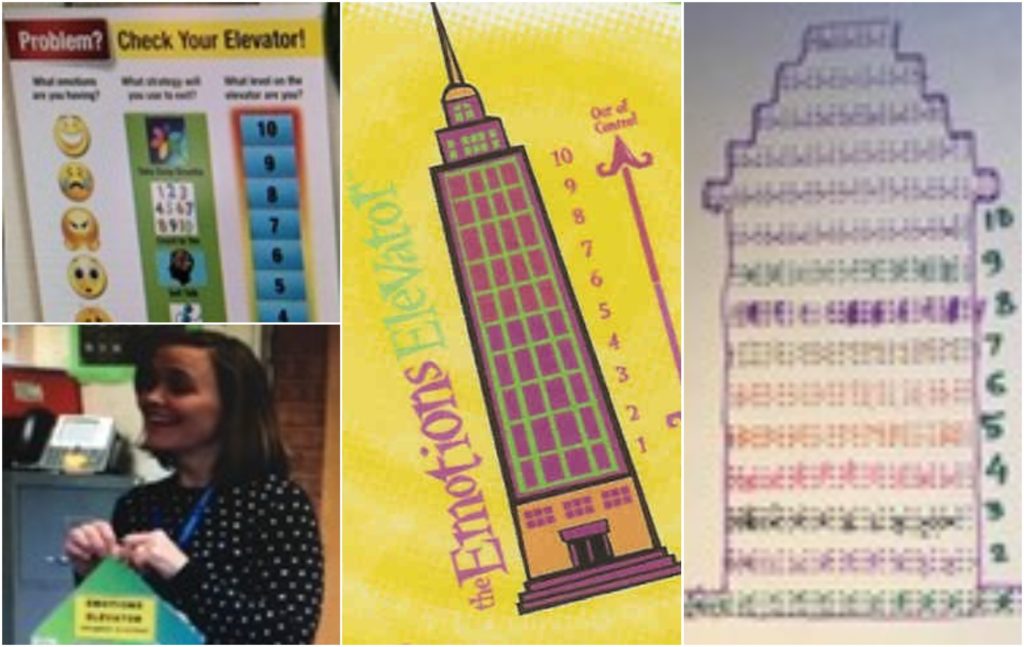Exit Your Emotions Elevator Using Positive Self-Talk
Posted On: January 27, 2021We have learned how BrainWise CPR and the 10 Wise Ways are first response skills to prevent and manage problems. Each of us finds our own ways to use these skills to exit the Emotion Elevator. With practice, we simultaneously use different Wise Ways to successfully handle problems. We use BrainWise ourselves and teach its skills to our students.
Ethan Kross, Ph.D., an expert on self-control and emotion, shares his decades of research in Chatter:The Voice in Our Head, Why It Matters, and How to Harness It. He writes about how inner voices differ from person to person and how internal narratives can be beneficial.

Emotion Laboratory,University of Michigan
His work complements Wise Way #4 and the ways we teach students to “Exit their Emotions Elevator” before their emotions explode on the top floors. Control self-talk is a powerful tool they use to prevent toxic thoughts from escalating. Dr. Kross offers a fresh perspective on additional ways to use control self-talk. These include:
Self distancing or placing yourself away from the things that will trigger your negative comments and other toxic behaviors. “Stop Talking and Leave the Situation” and “Do Something Else,” (Newsletter #49 & #50) can be compared to self-distancing. They are techniques that help students recognize their red flag warnings so they can Stop and Think.
Self-coaching is using your own name when you have a discussion in your mind with yourself. Dr. Kross says research shows we are better at advising other people than ourselves. He says that by talking to yourself in the third person — “Ethan, you need to use your Wizard Brain and calm down!” – you will pay better attention. Tell your students not to worry — this is not crazy behavior! They are in control of the context and know its helpful purpose. Also, it is internal so no one can hear what you are telling yourself.
Establish Rituals are familiar behaviors the student can use to redirect the problem. The BrainWise stop and think hand gesture is a ritual that students can use silently and discreetly to disengage from a problem.
STOP THINK
and Use Your Wizard Brain
Share your experiences with someone who can help. Students know how to find and put people who help into their Constellation of Support. Remind students that it is important to use their support system and to be aware if they are avoiding seeking help and sharing their experiences. Have students talk about their choices and assess each choice by considering the consequences of their choice now, later, and affecting others. The Lizard Brain reacts but the Wizard Brain thinks about how others can help them.
Zoom Out and think about others who have had bad experiences and were able to get on with their lives. The Covid pandemic poses many unknowns and strikes fear and stress. If students remind themselves that other families made it through the 1918 flu pandemic, it will offer them hope.
Reframe your Problem as a Challenge taps into responding to your internal Red Flag warnings. For example, instead of interpreting the knots in their stomachs or their rapidly beating hearts as negative cues, students can reframe the feelings as positive signs. Instead of striking fear, think about the warning as making the student aware of the problem in order to prepare to take action. A student who is fearful that their family members would get sick can channel this worry into making sure all family members practice safe health protocols.
Create Order Around You is the same as “Do Something Else.” Dr. Kross says people crave a sense of order, and by taking control of your space – cleaning the garage, going for a walk – you are clearing your mind. Ask students to share the actions they take to channel their feelings.
Experience Awe. Many experiences can cause awe, including religion, nature, art, animals, and music. Dr. Kross says “awe” events can blunt negative chatter by replacing it with activities that elicit awe. These experiences are very individual, and students will enjoy sharing activities that leave them in awe. Caution them to be aware that “awe” experiences sometimes send intense positive emotions up their Emotions Elevator and trigger Lizard Brain behaviors. Emphasize the importance of being aware that any emotion can reach top floors of the emotion elevator and trigger Lizard Brain reactions. Ask students to give examples of both.
Notes:
Dr. Kross’ book is an opportunity to expand our thinking about ways to use positive self-talk to stop and think. When negative self-talk becomes an endless spin in our heads, it becomes harder and harder to switch our thoughts and use Wizard Brain thinking.
Positive self-talk is a powerful tool and a quick way to exit the Emotions Elevator. With practice, students will find specific methods that work for them. Encourage them to share thinking skills with others so they, too, learn how to Stop and Think.

